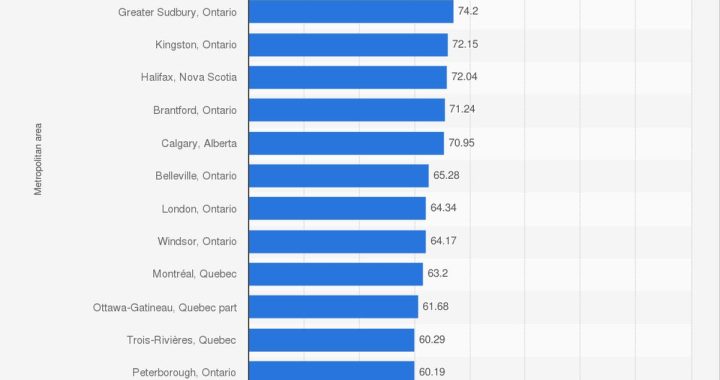Job Serviecs for New Immigrants in Canada to help them settle faster

Job Serviecs for New Immigrants in Canada
In Canada, there are various employment support services available to assist individuals in finding and maintaining employment. These services aim to help job seekers improve their skills, access job opportunities, and overcome barriers to employment. The Canadian government, provincial and territorial governments, as well as non-profit organizations, play a crucial role in providing these services.
Here is an overview of some of the key employment support services available in Canada:
Employment Insurance (EI):
Employment Insurance is a federal program that provides temporary financial assistance to individuals who have lost their jobs through no fault of their own. It also offers additional support for individuals on parental or compassionate leave. EI benefits can be accessed by eligible individuals who have contributed to the program through their employment earnings.
Also Read- For a Dream Job in Canada, may make relevant resume
Job Bank:
The Job Bank is an online platform operated by the Government of Canada. It serves as a centralized job search tool, connecting job seekers with employers across the country. Job seekers can search for job openings, create a profile, upload resumes, and receive job alerts. Employers can post job advertisements and access resumes of potential candidates.
Career and Employment Services:
Each province and territory in Canada has its own career and employment services, which provide a range of supports to job seekers. These services offer career counseling, job search assistance, resume writing help, interview preparation, and access to job fairs. They may also provide information about local labor market trends, in-demand occupations, and training programs.
Employment Service Centers:
Employment Service Centers, also known as WorkBC Centers in British Columbia or Alberta Works Centers in Alberta, are physical locations where individuals can receive personalized employment support. These centers provide one-on-one assistance from employment counselors, access to computers and job search resources, workshops on job search skills, and information on training and education programs.
Also Read- Laid off in Canada, What are options to Sustain
Skills Development and Training Programs:
Various skills development and training programs are available to help individuals acquire new skills or upgrade existing ones. These programs are often offered by government-funded agencies or non-profit organizations. Examples include the Canada Job Grant, which provides financial support to employers for employee training, and the Second Career program in Ontario, which assists laid-off workers in obtaining training for new careers.
Youth Employment Programs:
Canada has specific programs aimed at supporting youth in their transition from education to the workforce. The Youth Employment Strategy (YES) is a federal initiative that offers various programs, such as the Youth Employment and Skills Strategy, the Canada Summer Jobs program, and the Skills Link program. These programs provide funding for employers to create job opportunities for young people and offer support for skills development and work experience.
Support for Specific Groups:
There are specialized employment support services available for specific groups facing unique challenges in the job market. For example, the Indigenous Services Canada offers employment assistance and training programs for Indigenous peoples, while organizations like the Neil Squire Society provide assistive technology and support for individuals with disabilities.
Self-Employment Support:
Individuals interested in starting their own businesses or becoming self-employed can access resources and support through programs like the Self-Employment Benefit program, which provides financial assistance and mentorship to eligible individuals.
It is important to note that the availability and specific details of employment support services may vary by province or territory in Canada.
It will be good idea for new immigrants in Canada to visit their local government websites or contact their nearest employment service center for more information on the services available in their area.

 Express Entry Updates for 2025: What Immigrants Need to Know
Express Entry Updates for 2025: What Immigrants Need to Know  Navigating Challenges: Canadian Cities, with High Crime Rate, moderate Job Opportunities, Where Immigrants May Struggle to Settle
Navigating Challenges: Canadian Cities, with High Crime Rate, moderate Job Opportunities, Where Immigrants May Struggle to Settle  The Shadowy Trade: Understanding Canadian “Coyotes” for Immigration and Protecting Yourself
The Shadowy Trade: Understanding Canadian “Coyotes” for Immigration and Protecting Yourself  Now Canada Can cancel the Travel Visa or Study Permit issued- What You Need to Know About Visa, Work, and Study Permit Cancellations
Now Canada Can cancel the Travel Visa or Study Permit issued- What You Need to Know About Visa, Work, and Study Permit Cancellations  Impact of Anti-Immigrant Sentiment on Canada’s Provinces and Job Sectors
Impact of Anti-Immigrant Sentiment on Canada’s Provinces and Job Sectors  America’s 2025 Deportation Crackdown: Should You Stay or Self-Deport?
America’s 2025 Deportation Crackdown: Should You Stay or Self-Deport?